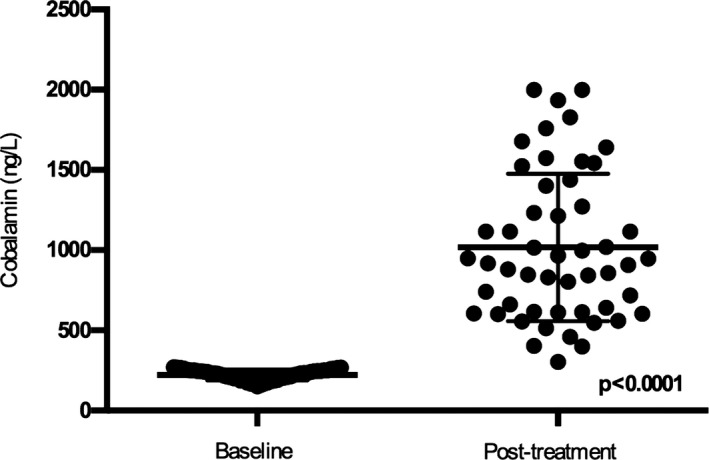
Cobalamin (B12) deficiency is frequently encountered in dogs and cats with chronic enteropathies (CE) and exocrine pancreatic insufficiency (EPI). B12 metabolism follows a complex array of carriers to be effectively absorbed which can be negatively impacted by intestinal inflammation and dysbiosis. In human patients oral supplementation is often utilized, while repeated parenteral injections is often used in cats and dogs. An oral protocol in companion animals could increase compliance and be less costly to pet owners.
A recent study (1) looked at the use of oral B12 supplementation in B12 deficient dogs with CE. Fifty-one B12 deficient dogs (<270ng/L) were given oral B12 supplementation and followed for a median of 72 days. Cyanocobalamin dosing was based upon weight ranging from 250mcg in dogs <10kg to 1mg in dogs >20kg.
Key Finding:
Oral B12 supplementation can be an effective alternative to parenteral injections.

There was a significant increase in B12 concentration ranging from initial mean value of 223 ± 33ng/L to post-supplementation mean value of 1,017 ± 460ng/L.
Oral B12 supplementation can be an effective alternative to parenteral injections.
Reference:
- Toresson L (2016) Oral cobalamin supplementation in dogs with chronic enteropathies and hypocobalaminemia. JVIM
